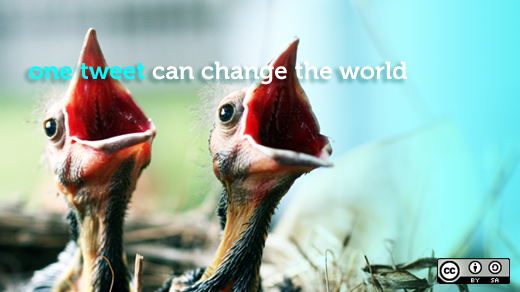Hi Tracey,
"I'd be interested to know how you feel your developing as a digital learner has influenced you as a teacher."
I am a multi-modal learner (see VARK 2014 post ).
Broadly speaking I consider my development has been growth in 'empathy' and 'technical ability'. I really enjoy 'having a go' and' trying things out'.
"I'd be interested to know how you feel your developing as a digital learner has influenced you as a teacher."
I am a multi-modal learner (see VARK 2014 post ).
Broadly speaking I consider my development has been growth in 'empathy' and 'technical ability'. I really enjoy 'having a go' and' trying things out'.
As a digital learner I have had many great and not so great experiences but I learn from each.
I have enjoyed the diversity of resources available to me via the WWW. The global network of learners from the courses I have undertaken 'on-line' has been great, I enjoy exploring from both my own and others perspectives.
I value open collections and get frustrated when I can't access recommended or essential readings because they are not available in the 'public' domain or the 'domain of my employer'.
I have encountered a diverse range of technical challenges, resource challenges with incompatible technologies and activities taking longer than anticipated by the 'facilitating teacher' or me as a learner. I love my new Chromebook but it frustrates me that so many 'teaching technologies' don't work inside the browser. Thanks #ocTEL for the live #YouTube stream.
I enjoy the freedom to explore my learning but also recognise I have to maintain focus. I enjoy the diversions the WWW offers but know the importance of a study outline with my key terms to retain focus.
Finally as a professional I also acutely aware of my 'on-line persona' and how this presents to the public, my peers, and students. My mantra is if I don't want the world to know it then I don't put it on-line! I have work persona which is separate from my 'friends and family' this causes some challenges as the technologies don't allow for this level of security within them, or don't provide the confidence level for the security I would like, so I use #Facebook for 'friends and family' and #Google+, #Twitter and #LinkedIn for my professional self. I also value as a student the security and privacy of a closed learning environment such as an institutional #VLE. I want to explore safely and when I stuff up I don't want to worry about the mistake being 'public', I expect the VLE to be a private, safe space in the same way as my 'physical classroom.
--------
So from these experiences as a digital teacher, I would say I am aware of the potential challenges students grapple with when mastering new technologies or using technologies in new ways. I believe that mastering the technology should not get in the way of the real learning purpose.
So from these experiences as a digital teacher, I would say I am aware of the potential challenges students grapple with when mastering new technologies or using technologies in new ways. I believe that mastering the technology should not get in the way of the real learning purpose.
I am 'conservative' in that my teaching delivery is primarily via a VLE. I believe this provides students with a 'secure and safe' place to explore and learn without fear of it leaking into the public world. It is also supported by our IT help team so the student isn't 'on their own' when it goes wrong. I test my resources across a variety of devices and browser so I can try and iron out the glitches, or at least for warn students and provide 'help' information.
In the absence of institutional student access document management systems I do use Google drive to share resources and maintain version control. I also use other web2.0 tools as 'optional' tools in my teaching, I believe students should have a choice whether they sign up to the licence and should have opportunity to consider its level of openness before use.
My teaching activities on-line always include some reading, discussion, reflection and where possible some video/audio element (often YouTube) or a resource from our streaming server.
My students are primarily on-campus learners, we regularly get together for face to face discussions. Using their digital learning activities to prepare for the discussion.
I advocate that the on-line learning time is part of the learning time for the module/course and must not be considered a 'bolt' on. I offer face to face, on-line and telephone tutorials so students can engage in location rather than always attending campus.
For me digital learning (and teaching) is a richer, more personalised, and flexible learning experience, the openness of the WWW removes many of the boundaries to learning. I love being a digital learner and a 'conservative' digital teacher. It isn't plain sailing and over the years I have felt constrained by my work environment and curriculum and my professional identity. I carry around a 'virtual soap box' to stand on!
In the absence of institutional student access document management systems I do use Google drive to share resources and maintain version control. I also use other web2.0 tools as 'optional' tools in my teaching, I believe students should have a choice whether they sign up to the licence and should have opportunity to consider its level of openness before use.
My teaching activities on-line always include some reading, discussion, reflection and where possible some video/audio element (often YouTube) or a resource from our streaming server.
My students are primarily on-campus learners, we regularly get together for face to face discussions. Using their digital learning activities to prepare for the discussion.
I advocate that the on-line learning time is part of the learning time for the module/course and must not be considered a 'bolt' on. I offer face to face, on-line and telephone tutorials so students can engage in location rather than always attending campus.
For me digital learning (and teaching) is a richer, more personalised, and flexible learning experience, the openness of the WWW removes many of the boundaries to learning. I love being a digital learner and a 'conservative' digital teacher. It isn't plain sailing and over the years I have felt constrained by my work environment and curriculum and my professional identity. I carry around a 'virtual soap box' to stand on!
 |
| Soapbox Image source: https://www.flickr.com/photos/transforminggenerosity/13776713843/ |
p.s. as usual for me this was composed, edited, and then finally posted..... as a rather lengthy response.
I then decided to compose in its own post ....... :-)




